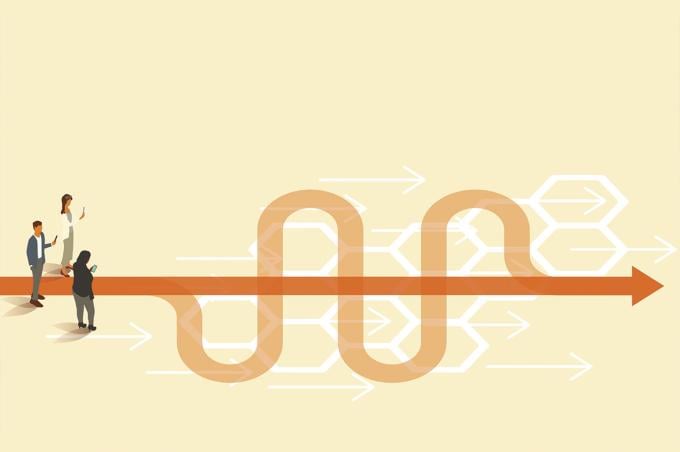There is a disturbing trend that has worsened since the COVID-19 pandemic: The rising incidence of violence, intimidation, threats and attacks directed toward physicians and the other health professionals who work to heal.
Such acts not only compromise the safety and well-being of physicians but also pose a grave risk to patient care and the overall functioning of the nation’s health system. While many physician practices, hospitals and health systems are taking measures to better protect the physical environment, there are also steps physicians can take to better protect themselves.
Using the term “left of bang” as a starting point, “if we were looking at a timeline of events the critical incident is the bang. Before we get to the bang, we want to do everything we can to the left of that—it’s a military term that’s been used,” said John Mack, principal of Operational Solutions, LLC, which is an organization that helps mitigate organizational risk. He is also currently chief of the Office of Research and Development for the Illinois State Police.
“From a civilian perspective, the best outcomes are a function of preparation mindset and the ability to act, getting through what we call the survival arc,” Mack said during an education session at the 2023 AMA Annual Meeting in Chicago last month.
He noted that for “civilians who are present for any given incident, it is important to understand that you are the first responders and have some tools to work with that. And probably the most important thing is being able to break the inertia and to act.”
Here are some things physicians can do to better address violence in the workplace should it happen.
Have situational awareness
While it is vital that you have a plan, “situational awareness is knowing when to activate the plan,” Mack said. For example, “if I see behaviors indicating potential violence, I don’t sit back and watch for it … I’m going to do something. And then you act.”
“Then afterwards, when everything is said and done, we do our after-action and our sentinel review and we come right back to the mental preparation and we build on it,” he said. “It’s a never-ending cycle—quality improvement, if you will—for our own lives.”
Have a survival mindset
“Decide now that you’re going to be a survivor. Now is the time to start preparing for these situations,” Mack said during the session, hosted by the AMA Organized Medical Staff Section. “Prepare for it. Be ready. And then live your lives comfortable and confident that you’re going to be able to deal with them when they come along.”
Look to policies
Whether it is a private practice, hospital, academic center or health system, “look to your policies. You have to have effective policies,” Mack said. “If the policies haven’t been updated in a while or you feel that they’re not appropriate or not meeting what the current best practices are, work to get them changed. Work to improve them.
“It’s a constant improvement process. You do the training, you’re building the resilience, the visualization, the drills, and then you do your plan,” he added. For example, a drill could show that people are unfamiliar with all the available exits, leading to potentially harmful bottleneck.
“So we need to practice that and get people to get out of the building, not just through the door they came in, but what the nearest exist is.”
Consider combat parking
When parking, think about what the lot is going to look like when your shift is complete. While the parking lot may be full when you arrive, at 10 p.m. when you leave, it may be empty, so consider “combat parking.”
Combat parking is “backing into the space or pulling through so that you can drive straight out and not have to back up,” Mack said. “And at the departure, do a quick sweep of the vehicle before you get into it. Walk around, take a look, know what’s going on around your car. Then assess and reassess your entrances and exit.”
“If we’re worried about the event and how we’re going to respond to the event itself, we have to try to do everything we can to prevent it through a number of different resources that we have,” he said. As physicians, though, “keep fixing the world and doing all that really good stuff that you do.
“Don’t obsess over it. Prepare yourself. Make yourself a harder target and do the thing that you do,” Mack added. “We’re going to do what we do and try to make sure we’re keeping people safe.”
Learn more about the AMA Organized Medical Staff Section, the only physician-led, national group that advocates for medical staff organizations and their members.




